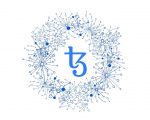In this article, we delve into the issues of tokenization with Hans Henrik Hoffmeyer, co-founder and Chief Operating Officer (COO) of Coinify.
Tokenization refers to the process of creating digital representations of assets (tangible, e.g. real estate, paintings, diplomas; intangible, e.g. carbon credit, copyright; or financial, e.g. stocks) on the blockchain. These assets can then be easily recorded, stored, and moved within the blockchain ecosystem. This may have significant impact on the economy. However, before we focus on what tokenization can achieve, we need to assume a sober approach to the current state of it, and understand the issues that need to be solved before tokens can reach their full potential.
Interviewer: What do you see as the current problem within the area of tokenization?
Hans Henrik: When we talk about tokenization of physical assets in the real world, there is still the problem of ensuring that the asset is there, that it is yours to tokenize, that it is yours to either sell, move, share, or use for some other purpose. The issue is verifying that with a high degree of certainty.
You might say “this token represents this value, and it is undoubtedly that value that is represented.” But who are you to be sure that if you go and audit it, that the value is there? That’s the big problem of the “garbage in, garbage out” with blockchain – if you tokenize something on the blockchain, you need to be certain that this is now a true tokenization of something which is valuable.
I: And you consider tokenization to be a continuation of the story of cryptocurrencies, correct?
HH: Yes. Now we have a proof case of cryptocurrencies. But it needs to be understood that cryptocurrencies are just tokens of value – nobody owns bitcoins, nobody has Ethereum in their wallet. What they have is a proof that they can move something on a blockchain. And having that proof in your hand is also a token. I would argue that if you have a private address it is also a token – a private access to this particular Bitcoin. But the bitcoins themselves are only moved on the blockchain, they’re not moved to your phone or laptop, it’s just a key (or a token).
When we talk about tokenization, there are different types of tokens: utility tokens, security tokens, and payment tokens, the latter being what we know from cryptocurrencies. But when we talk about asset tokens, for instance, you need to specify what is the asset that’s being tokenized. And that’s where the problem is, in my view. How do you ensure that the asset is tokenized here, and it’s not for example tokenized on five different blockchains with the same asset, which can lead to a dispute about ownership? There are other problems that need to be solved, but one of the biggest is achieving a distributed consensus about the reality…
I: So standards?
HH: No, it’s not just standards. One thing is to agree that this is the reality in terms of a blockchain, but how do we ensure that what is in the blockchain is also represented in the real world? If we have tokenized, let’s say, real estate, and I can prove that I have the sole ownership rights to this token, does that really also mean that I can move the asset that it represents? I would argue that’s why many of the tokens are worthless – because you cannot really prove without a doubt that you actually are the sole owner of that asset.
Utility coins (or utility tokens) are interesting, because there you can program something. I can make a software system, where everybody agrees that you have the right to move a certain thing, open a contract, use a certain service, etc., because you have a unique key. If all that is ruled by software, then it’s easy to prove that you’re the one who is able to move it. The big problem is only when you talk about connecting it to the real physical world. How do you know you have the custodial rights to that asset, to tokenize it in the first place?
I: What will be the impact of tokenization?
HH: Certain sectors will not understand how this has affected them before it it actually happens. Let’s take Tether, a stablecoin issued to support a crypto type functionality for a traditional fiat currency like the US dollars, where 1 Tether equals 1 Dollar. So a Tether is a token of 1$. But where does the dollar reside? Currently, in a bank somewhere in the United States, I assume.
I: With Tether that might be questionable now.
HH: Yes, you can believe them, or may not believe them. But let’s assume the dollars are there. And when using Tether, the dollar is seemingly moving on the crypto network, but in reality, that dollar sits in the bank and doesn’t move at all. Let’s say that the Tether value is 100 billion dollars, so now you’ve just taken out a certain amount of money from the traditional banking sector and put it into a new, disruptive blockchain based economy, where this value is moving ten times, a hundred times a day, but that dollar is just standing still.
So in principle, you’re moving the liquidity out of the traditional financial sector and you’re moving it into a crypto space, where things are moving around, and establishing the liquidity. The financial sector will not recognize that as a problem, because the entire cryptocurrency system is such a small economy on a global scale; it is smaller than some of the biggest companies in the world. But eventually, when stablecoins start to be used more and more, banks are going to recognize that “oops, actually, the service that we were used to provide for companies is sitting very still, while some other actors in the space are now moving liquidity around without asking us. Without verifying that with a bank anywhere, just moving it around and facilitating trade, transactions, and value transfers without a bank.”
And when financial institutions and regulators recognize that stablecoins are actually building an economy outside the traditional financial ecosystem, then they’re gonna recognize that this area actually has extreme potential, also to change how finance is today.
| At eToro you can trade 49 currency pairs, including several cryptocurrencies. Join eToro |
I: What about regulation? How can you move forward with with your project with regulation so far behind?
HH: It’s not as bad now as you might think. If you go back three years, European regulators did not have a clue about this space. But they have reached out to industry experts and have now established a level of understanding, which allows them to start regulating this scene in the right way. You can say that it’s happening across the world. There are certain jurisdictions, like in the US, Switzerland, or Singapore, where they are already into the FinTech space and have developed interest and basic knowledge. Those jurisdictions have already established some sort of, I wouldn’t call it a pro-regulation approach, but at least they have started to interpret existing laws against this new paradigm shift, and recognize where it works and where it doesn’t work.
Right now it’s not about regulation per se, but more about where does it fit into the existing legislative framework. And I would say that the cryptocurrency piece is starting to fall into place now. We have now, at least in Europe, the 5th anti-money laundering directive, which stipulates how we should combat money laundering and terrorist financing, and how exchanges should be registered with the FSA’s of the various member countries in Europe. In principle, we’re just establishing a framework of moving things out of the gray zone and into more black-and-white (this is what you can do, this is what you cannot do, this is how you should be registered, this is how you cannot conduct your business, etc.). That’s one step.
The next step is, of course, tokenization, which is going farther than cryptocurrencies as a means of payment. Now we’re talking about investment vehicles, like the ICOs, where you raise capital based on a token. As ICOs resemble IPOs, from a regulatory perspective, some believe that if it looks like a duck and it quacks like a duck, then it could be regulated as a duck. And that’s where the problem starts arising, because across Europe it’s quite easy to get consensus around combating terrorists and money laundering. But when you’re talking about securities, then for various reasons we don’t have an agreement across the member states what is a security. We don’t agree, necessarily, that a security is just a house, or a share in a company. Securities can be many things, and there are different national adoptions of security regulations. So from the EU perspective, the only thing that the European Securities and Market Authority (ESMA) can do is say “well, you should do something along the lines of this”. And, therefore, the security regulations affecting tokenization are going to take a much longer time to be agreed upon, because it’s more complicated regulation. For instance, let’s say that you want to issue shares against your company. Initially, you would have some sort of an Initial Public Offering, where you would offer shares to the public and say “buy a piece of my company and hopefully you’ll profit”. There’s a lot of regulation around issuing securities during an IPO, such as a need to establish a prospectus, and involve banks and other authorities. If a company doesn’t comply, it could be issuing anything, for example, something with no value, and then fooling people into investing in it. From a regulatory perspective, we would obviously want to avoid that. Therefore, this regulation does not necessarily fit a tokenized world, where the value being issued is a token. It’s not a share in the historic sense. So there’s a lot of areas where you need to adapt the regulation to this new thing. And in my view, member states are not going to change their laws just because there is this new fancy ICO theme emerging. They will look to how can we actually interpret what is happening under existing laws. It is very difficult to just change the laws because something is happening in the society.
I: Which sector will be the most impacted by tokenization?
HH: In my view, the financial sector. People are underestimating the stablecoin scene. There are now two, maybe three basic models of a stablecoin. But eventually one of those types, in addition to Tether, is going to succeed on a global level. And at this point cryptos will no longer be considered exotic and will instead become truly useful. Just imagine how fiscal policies are going to be conducted if there is a new economy emerging, where your principal issued currency is a cryptocurrency based on fiat money. This means it has the exact same attributes as fiat, as well as some additional attributes, like the ability to move anywhere in the world across borders instantly, be divided into a gazillion pieces, and make micropayments worth one tenth of a cent in dollars.
At that point regulators, financial services authorities, and central banks are gonna say “we have an issue here, because we should be in control of our currency, and this stuff makes us not in control whatsoever”. Because it’s one thing if you deposit a dollar in a bank and issue a virtual coin of some sort, we have had that for many years. We even have regulation for this, it is called e-money license. So I issue something, but still have the money in the bank. So you can say a stablecoin like Tether that actually has and holds money in a bank somewhere (you can discuss about security and if the money is actually there) doesn’t have a serious impact on banks and central banks, because you’re still taking the dollar out of the economy and putting it in a bank. But with stablecoins you are in principle giving an IOU, which states that if you come with this token it is going to have the value of $1. So you have to exchange it against $1, you have that security.
| At eToro you can trade 49 currency pairs, including several cryptocurrencies. Join eToro |
And in my view what’s gonna change the game is starting to issue IOUs based on the value that is there. That means that companies could do without a bank, because now they could just use and settle transactions in the crypto versions of dollars or euros, without having any corresponding banking network in the U.S. clearing all transactions. Companies could then in principle establish a self-sustaining economy outside the existing financial markets. And when we get to that point, regulators are gonna say “we need to have a position around it”, that’s my view. And this is gonna move beyond the small market of Bitcoin and the various virtual currencies, it’s gonna have an impact.











